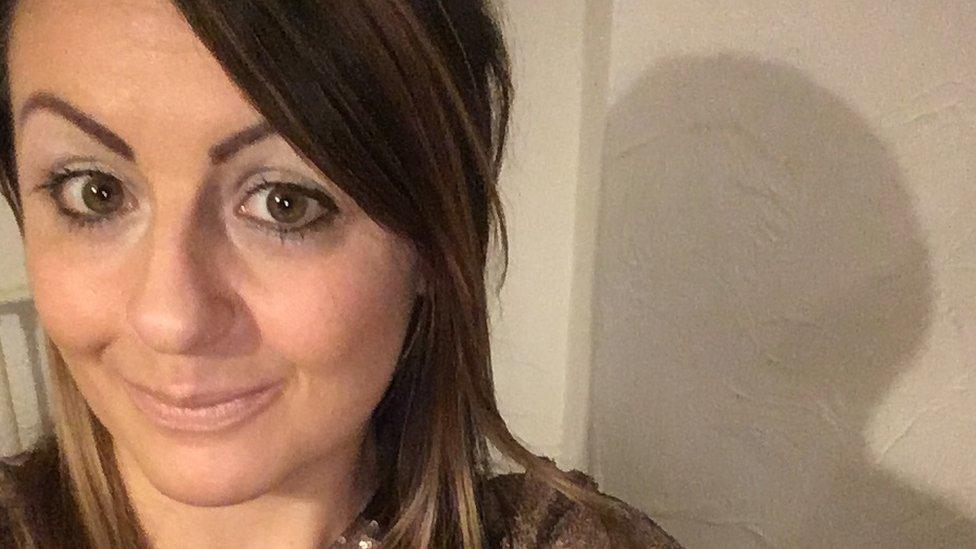Covid smear-test delays prompt calls for home HPV tests
- Published
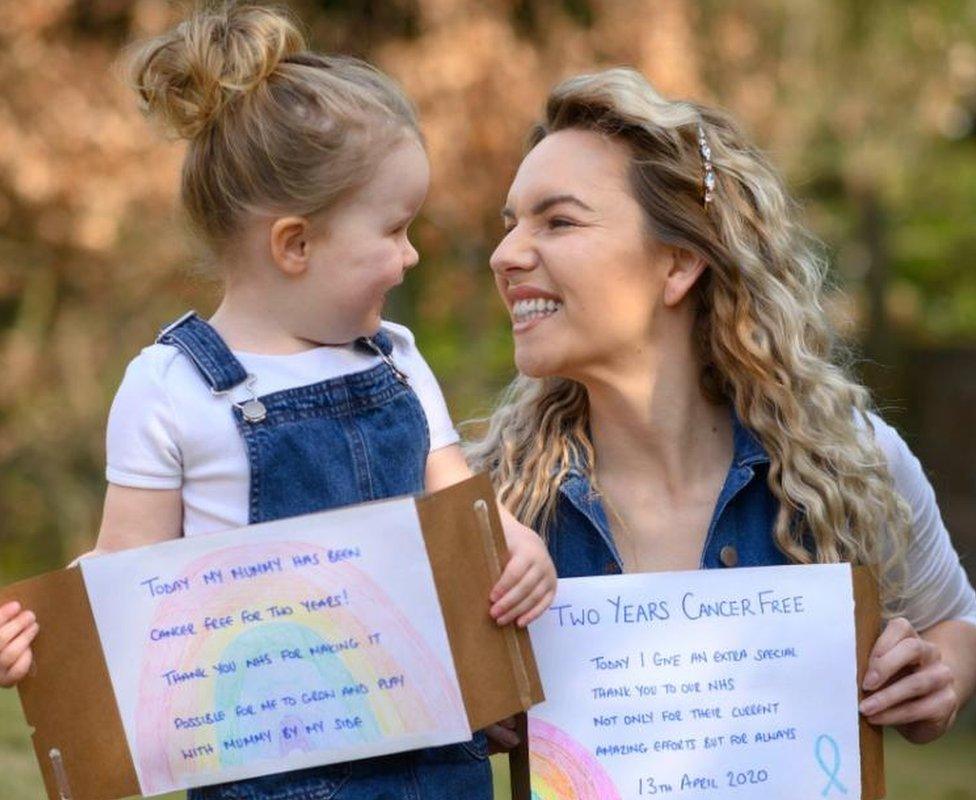
Sophie Davies, from Shropshire, recovering from cervical cancer, says delays to screening could be a matter of life and death
Smear-test delays during lockdown have prompted calls for home-screening kits.
Cervical cancer screening has restarted across the UK - but some women say they will not attend their appointments for fear of catching Covid.
Jo's Cervical Cancer Trust is urging "faster action" on home tests for HPV, which causes 99% of cervical cancers.
An NHS official said GP practices should continue screening throughout lockdown, and "anyone invited for a cervical smear test should attend".
Cancer Research UK said it was not yet known how effective and accurate self-sampling could be in cervical screening.
Screenings in Scotland, Wales and Northern Ireland have restarted after being halted during the first lockdown.
In England, the NHS told GPs and clinics not to halt smear tests - but, as the prime minister heard last week, some patients were experiencing cancellations and long waiting times.
About 600,000 tests had failed to go ahead in the UK in April and May, Jo's Cervical Cancer Trust said, in addition to a backlog of 1.5 million appointments missed annually.
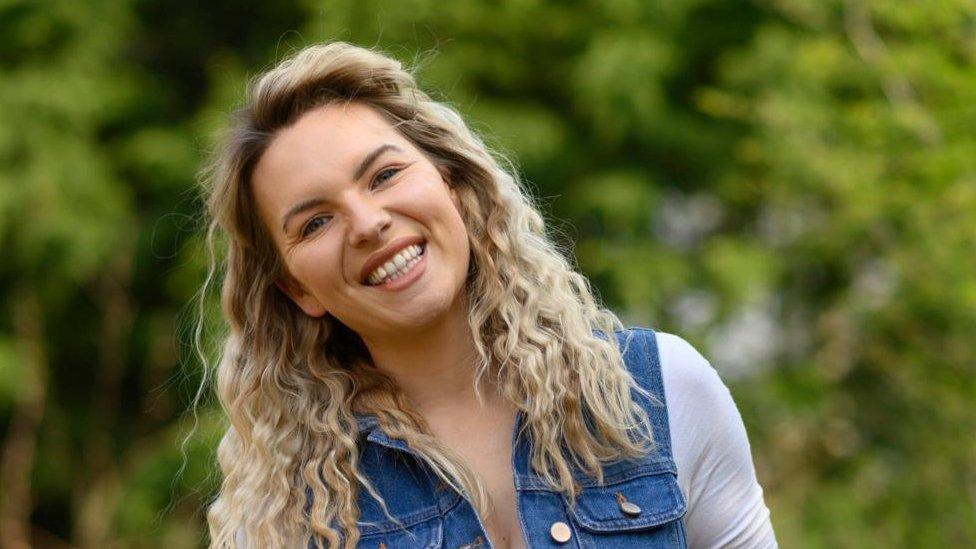
In March, Sophie Davies was told she needed a hysterectomy "within the month" but had to wait until December for surgery
A survey by gynaecological cancer charity the Eve Appeal indicates nearly one in three missed smear tests are the result of people being "put off" by coronavirus.
And a Jo's Cervical Cancer Trust survey during the pandemic suggests the same proportion would prefer to take their own human-papillomavirus (HPV) test rather than go to a GP.
Acting chief executive Rebecca Shoosmith said coronavirus had added "more barriers" to going for a smear test.
"Sadly those who found it difficult before are likely to be no closer to getting tested," she said.
"Self-sampling would be a game-changer."
Both charities emphasise smear tests are for "women and anyone with a cervix" and transgender and non-binary people may have additional barriers to going.
Jo's Cervical Cancer Trust said DIY tests could also help people who had been sexually assaulted and those with disabilities or from backgrounds where smear tests were taboo.

Samantha Renke felt anxious about catching coronavirus when she went for her smear test
Samantha Renke had received an abnormal test result and needed to go for a follow-up test during the pandemic.
The broadcaster and campaigner, who has brittle bones and uses a wheelchair, said a home-testing kit would have made things easier.
"I am at very high risk of getting seriously ill from Covid-19," the 35-year-old, from Lancashire, said.
"So I was incredibly anxious sitting in the waiting room for my test.
"Women with a physical disability are so much more likely to find cervical screening difficult, to the point where it can sometimes be impossible just to get through the door.
"We shouldn't have to fight to get this life-saving test.
"Self-sampling would be so much easier for people like me.
"It would allow me to take my health into my own hands."
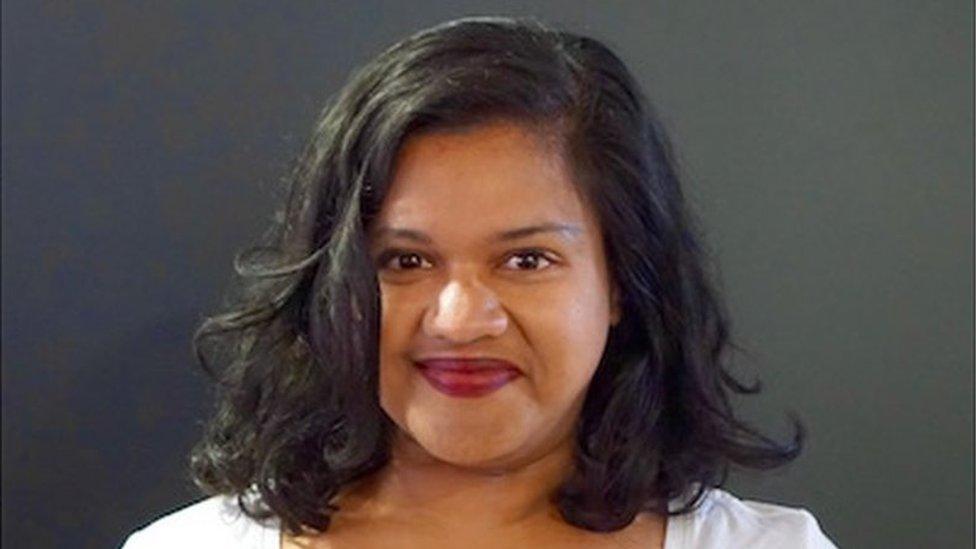
Ishita Ranjan said talk of smear tests was taboo in traditional South Asian families
Ishita Ranjan finally went for her smear test in August, having put it off for a "really long time".
"In most traditional South Asian families, women's sexual health is not something you talk about openly," the 31-year-old, from London, said.
"Young women are left to figure this stuff out.
"Until you get married, older female relatives find it problematic to share that kind of information."
A fear of catching coronavirus could be also stopping people belonging to ethnic minorities attending appointments.
"We have seen high Covid infection and death rates and people are genuinely scared," Ms Ranjan said.
"But this is essential.
"And it's really important that you do still go and do it.
"I was in and out in five minutes, no sitting around waiting rooms."

How do home HPV tests work?
Denmark and Australia already offer self-testing and there are pilots to see if it would be viable in the UK
In January, a study launched in north and east London, offering 31,000 people overdue for their smear test a home-testing kit, external
Another pilot, external is under way in Dumfries and Galloway
Kits are sent in the post and contain a long cotton bud to take a swab without touching the cervix
Anyone testing positive for HPV is asked to have a standard test by a clinician

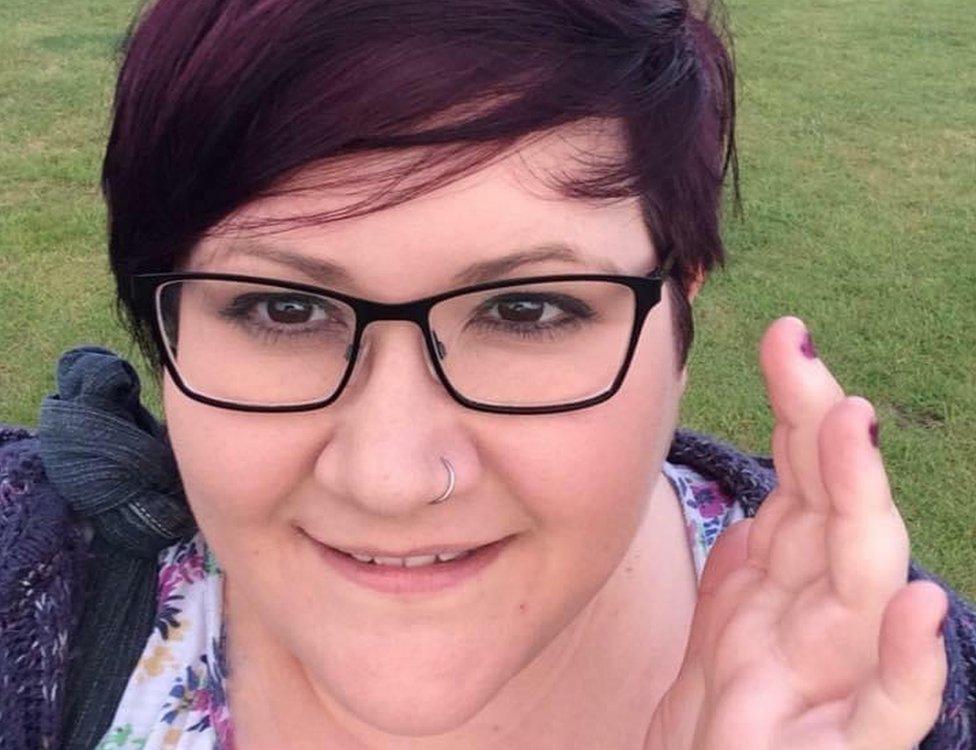
Helen Austin founded At your Cervix, a support network for people who find smear tests difficult
After experiencing sexual violence, it took Helen Austin 10 years to work up the courage to go for her smear test.
"When my first invite arrived through the post, years ago, my body froze, and I then ripped it up," she said.
Self-sampling would have given her time and privacy, the 35-year-old, from Lincolnshire, said.
"If my appointment had been during the pandemic and I could not have brought someone I trust with me to help me, I would never have gone," she said.
"Other trauma survivors I speak to find wearing a mask triggering and are putting off attending their test partly for this reason too."
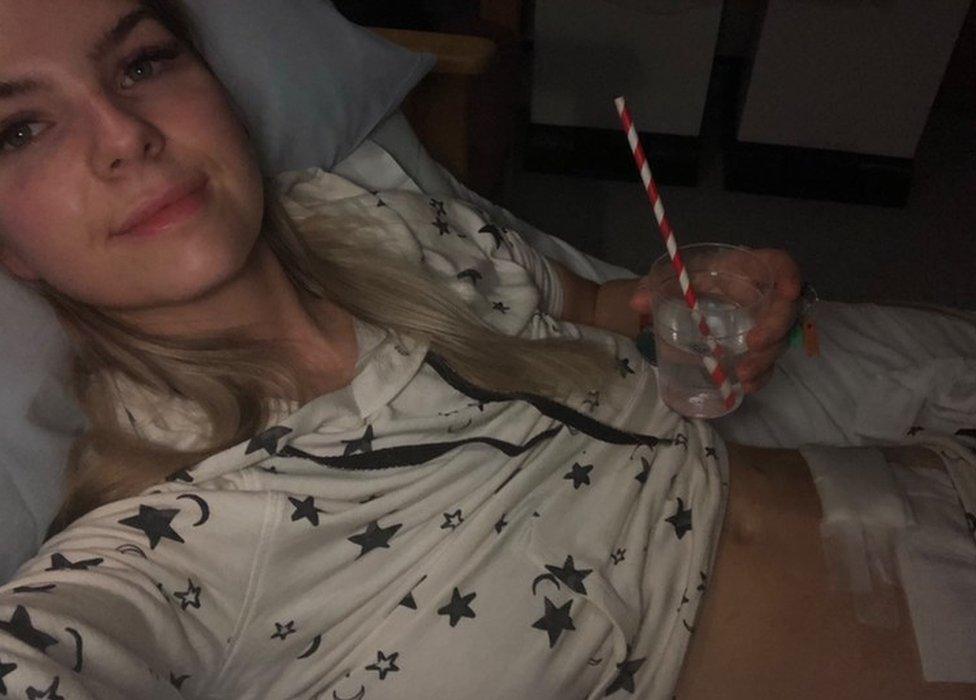
Sophie Davies, 32, saw in the new year alone in hospital, after having a hysterectomy
After developing a rare form of cervical cancer, Sophie Davies had a trachelectomy to remove her cervix, in April 2018, allowing doctors to save her ovaries and two-thirds of her womb.
But in March 2020, she was told the risk of cancer coming back meant she needed a hysterectomy and the removal of both ovaries.
"I was advised the operation needed to be done 'the sooner the better' and 'within the month'," the 32-year-old, from Shropshire, said.
"Then, Covid-19 happened."
And she had an "agonising" wait, until 30 December, for her surgery.
"I'm still awaiting my results, more than three weeks on, and praying I have not been left for the best part of a year with cancer growing inside me," Ms Davies said.
"These months of delay could be the difference in saving fertility or losing fertility.
"It could be the difference in needing chemotherapy or radiotherapy or not needing it, or could be the difference of life or death."
'Extra measures'
Cancer Research UK early diagnosis head Dr Jodie Moffat said research was under way to understand how effective and accurate self-sampling could be in cervical screening.
But getting more people screened "is not the only hurdle to overcome".
"The NHS is under immense pressure and would need more staff and equipment to ensure patients receive their results and any follow-up treatment as quickly as possible," she said.
An NHS official said: "The NHS guidance that cervical screening should continue has not changed, which has been communicated to GP practices, which have adjusted the way they work to remain open and safe, while local NHS services across the country have put extra measures in place to protect people from coronavirus and so anyone invited for a cervical smear test should attend."

LOOK-UP TOOL: How many cases in your area?
LOCKDOWN LOOK-UP: The rules in your area
TESTING: How do I get a virus test?

Related topics
- Published17 June 2020
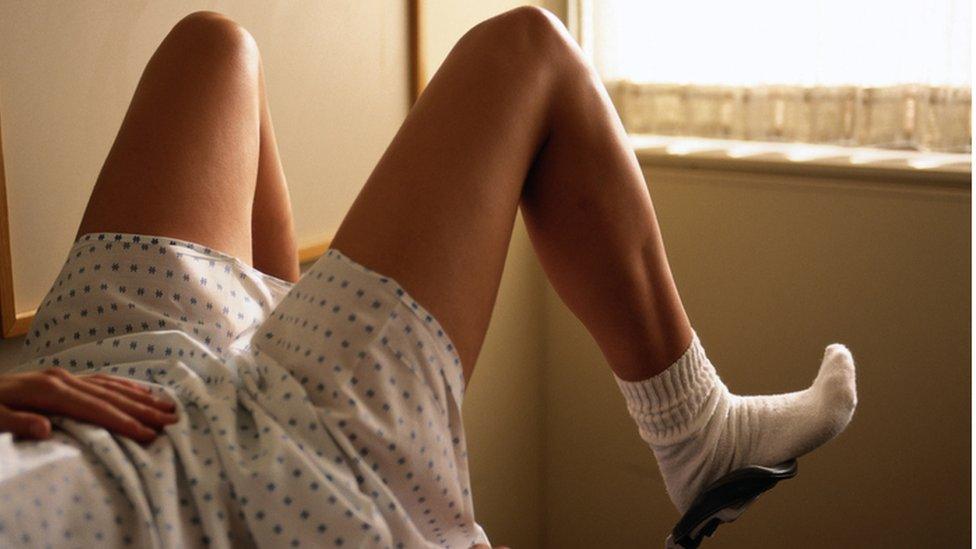
- Published21 March 2019
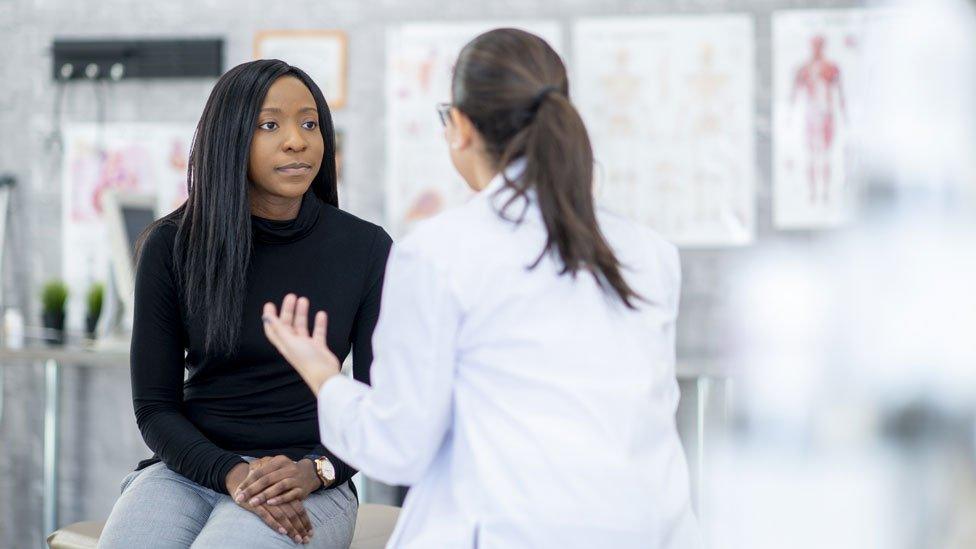
- Published10 November 2019
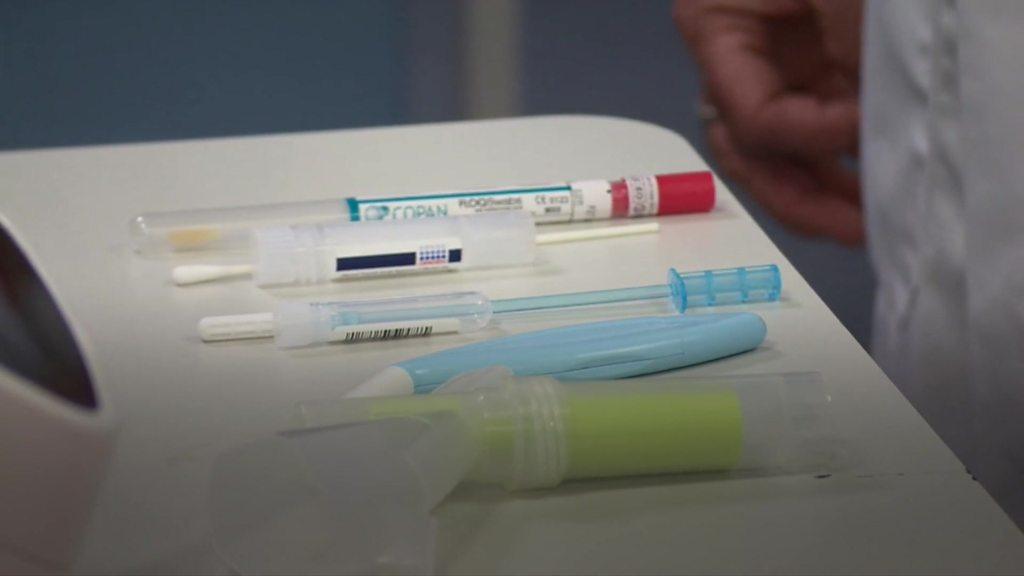
- Published5 May 2020
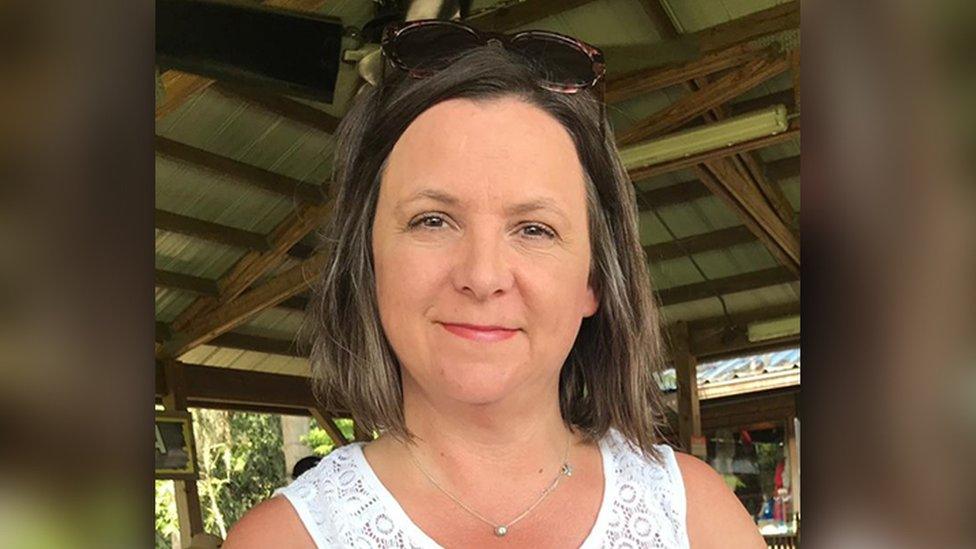
- Published23 January 2020
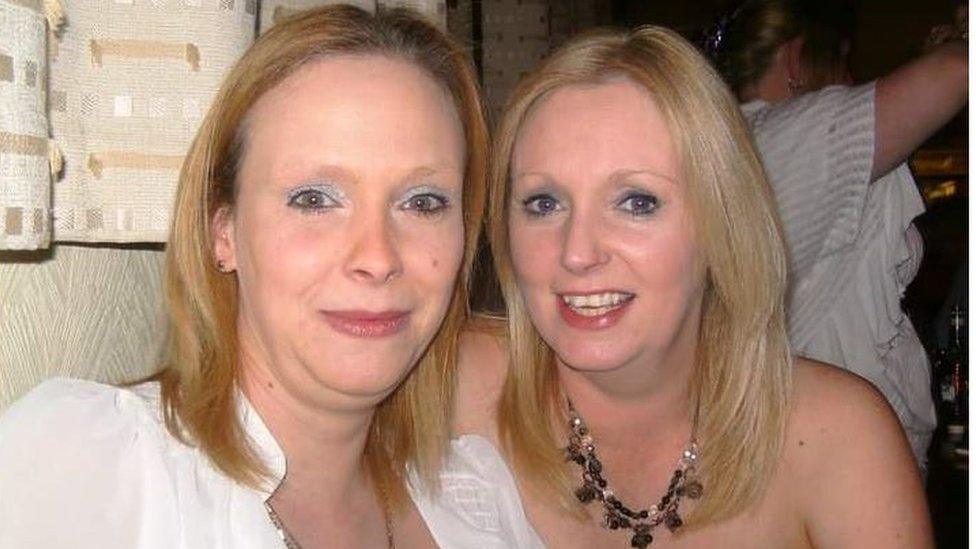
- Published20 January 2020
